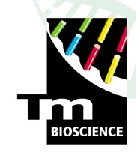TTAB Says "Forget It" to "TAG-IT" For Mutation Detection Kits
The Board affirmed a Section 2(d) refusal to register the mark TAG-IT for mutation detection kits used in the determination of particular genotypes in samples of nucleic acid, finding the mark likely to cause confusion with the registered mark TAGIT for N-hydroxysuccinimidyl 3-(4-hydroxyphenyl) propionate (a protein-modifying reagent also know as the "Bolton-Hunter Reagent"). In re TM Bioscience Corp., Serial No. 76485778 (April 26, 2005 [not citable].

Although the record failed to reveal a single vendor marketing both products, and although there was no evidence that both products would be used simultaneously in a given project, the Board found the goods sufficiently related for Section 2(d) purposes. Noting that the test is not whether customers would confuse a labeling product with a mutation detection kit, the Board observed:
"By analogy, perhaps these complex biotech products are different from each other in much the same way that a hammer is different from a pair of wire cutters. Both are tools, but inasmuch as one is used in construction and the other in electrical wiring, neither one would be effective in accomplishing the other's task. Nonetheless, if identical marks were to be used on both of these hand tools, confusion as to source would be likely."
The Board was "convinced that individuals ordering materials for a lab would come across both products, and could mistakenly assume a common source."
TM Bioscience's "sophisticated customer" argument went nowhere, the Board offering its oft-repeated explanation that "even sophisticated customers may be confused as to source by substantially identical marks." Moreover,
"[t]he technical staff of a laboratory, including those responsible for ordering replacement goods, may not exercise such a high degree of deliberation in their product selections, and may not be as knowledgeable as the lead researchers, and this could well lead to misplaced ordering."
And although the term TAGIT may be suggestive of the goods of both parties, "even suggestive marks are entitled to protection against registration of a substantially similar mark used in connection with closely related goods."
"In summary, we find that the marks are substantially identical as to overall commercial impression, that TAGIT has not been shown to be a weak mark in the field of biotechnology products, that the goods are related, and could well move through the same channels of trade to the same classes of consumers."
Text ©John L. Welch 2005. All Rights Reserved.




0 Comments:
Post a Comment
<< Home